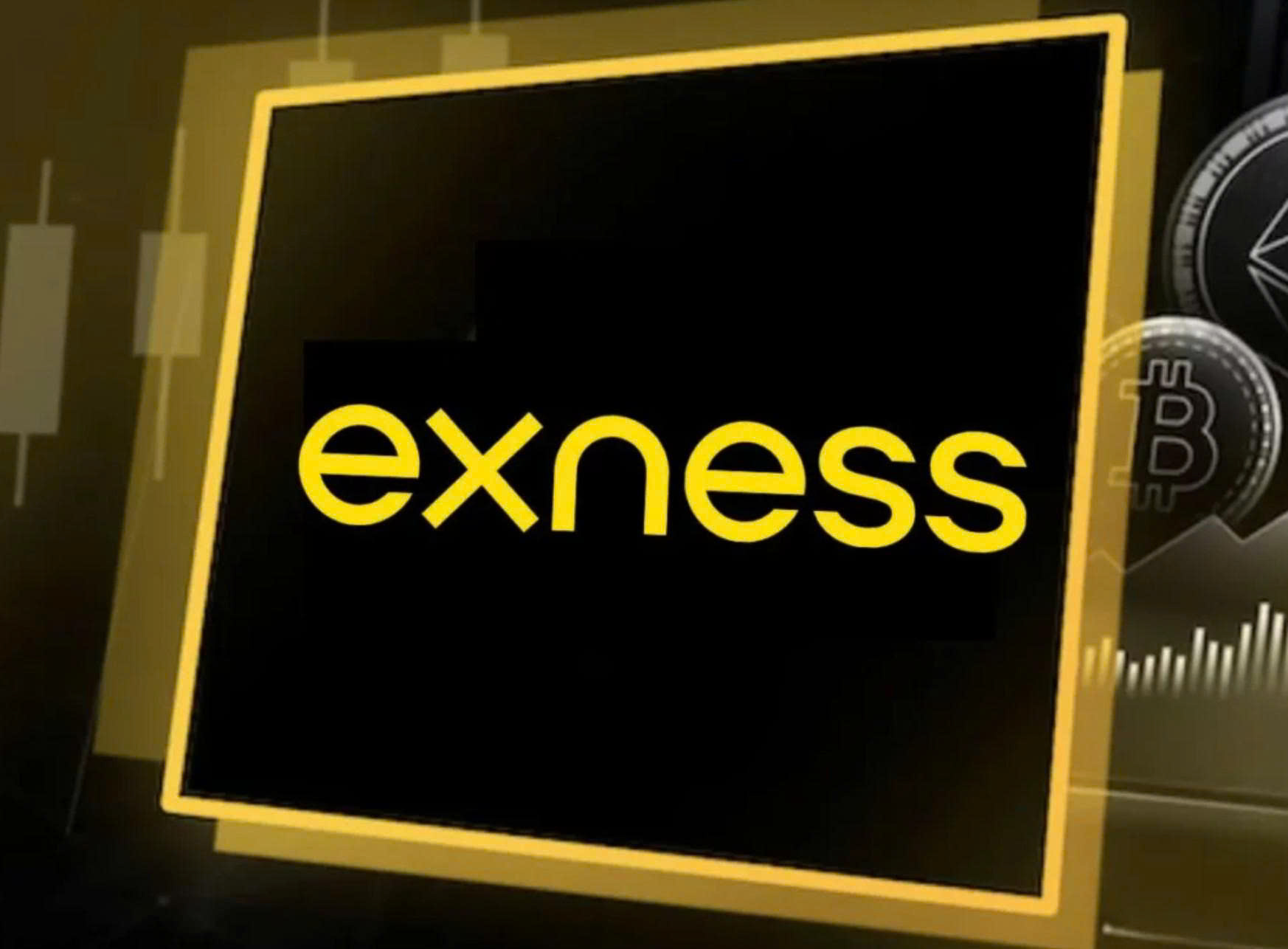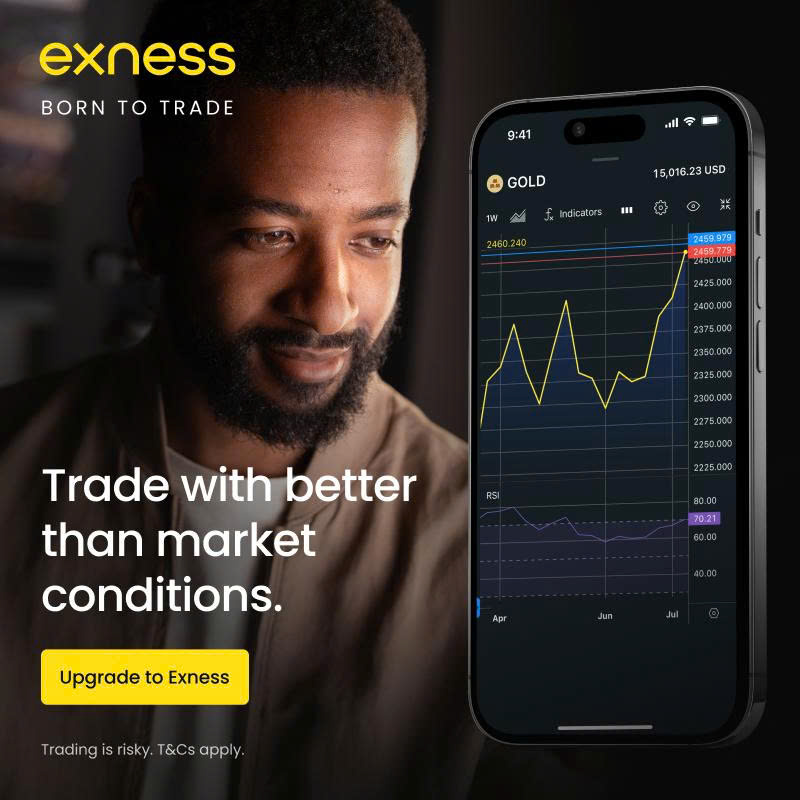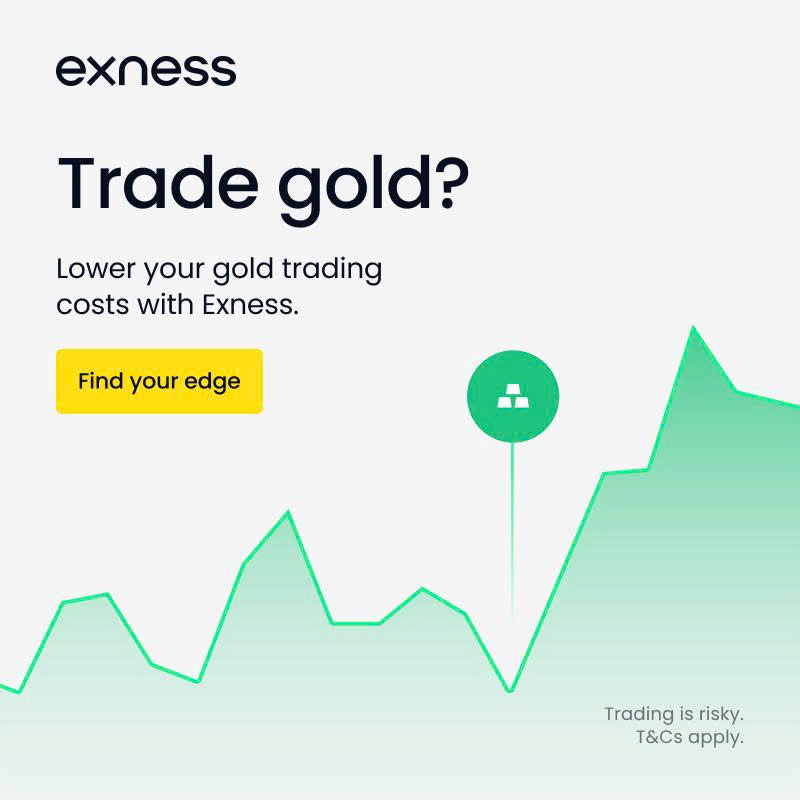
7 minute read
Is Exness a Good Broker in Nigeria? A Straightforward Review
from Exness Good Nigeria
If you’re a Nigerian trader wondering, “Is Exness a good broker for me?” the short answer is yes, Exness is a solid choice for many traders in Nigeria, thanks to its low costs, user-friendly platforms, and tailored features like Naira-based accounts. But, as with any broker, there are nuances to consider. In this article, we’ll dive into whether Exness fits your trading needs, breaking down its legitimacy, features, pros, cons, and how it stacks up in Nigeria’s unique forex landscape. Let’s get straight to it.

✅ Trade with Exness now: Open An Account or Visit Brokers 👈
Why Nigerian Traders Are Drawn to Exness
Nigeria’s forex market is booming, with millions of traders seeking financial independence in a dynamic economy. Exness, a global forex and CFD broker founded in 2008, has become a popular name here. Why? It offers low minimum deposits, supports Naira (NGN) accounts, and provides localized payment options like Paystack, making it accessible for Nigerians facing currency volatility and inflation. With over 1 million active traders globally and a monthly trading volume exceeding $4 trillion, Exness has built a reputation for reliability and transparency.
But is it really the right broker for you? Let’s break it down by looking at its legitimacy, trading conditions, platforms, and user experience, all tailored to the Nigerian market.
Is Exness Legit in Nigeria?
The first question any trader asks is, “Is this broker legit?” For Nigerians, this is especially critical given the regulatory gray area for foreign brokers. Here’s the deal:
· Regulation: Exness is regulated by top-tier authorities like the Financial Conduct Authority (FCA) in the UK, Cyprus Securities and Exchange Commission (CySEC), and Financial Sector Conduct Authority (FSCA) in South Africa. However, it’s not directly regulated by Nigeria’s Securities and Exchange Commission (SEC). Instead, Nigerian traders operate under Exness’s Seychelles entity (Exness SC Ltd), regulated by the Financial Services Authority (FSA). While this offshore regulation raises some concerns, Exness’s global licenses ensure adherence to strict standards, like segregated client funds and transparent operations.
· Security: Exness uses advanced encryption (SSL technology) and keeps client funds in segregated accounts, meaning your money is separate from the company’s operational funds. It also undergoes regular audits by firms like Deloitte, adding a layer of trust. For Nigerians, this is reassuring in a market where scams can be a concern.
· No Ban in Nigeria: There’s no official restriction on using Exness in Nigeria, and forex trading is legal under the Central Bank of Nigeria’s oversight, provided traders declare income and pay taxes.
Verdict: Exness is legit and operates under robust international standards, making it a trustworthy option for Nigerian traders, even without local SEC regulation.
Trading Conditions: What’s in It for Nigerians?
Exness shines when it comes to trading conditions, especially for Nigeria’s diverse trading community. Here’s what you get:
· Low Minimum Deposit: You can start trading with as little as $1 on the Standard Account or $10 (about 7,775 NGN) on other accounts. This is a game-changer for beginners or traders with limited capital in Nigeria’s economy.
· Naira-Based Accounts: Exness supports NGN accounts, so you avoid costly currency conversion fees. This is a big win given Nigeria’s fluctuating exchange rates.
· Competitive Spreads: Exness offers tight spreads starting at 0.3 pips on Standard Accounts and 0.0 pips on professional accounts like Raw Spread or Zero. This is ideal for scalpers and day traders who need low costs to maximize profits.
· High Leverage: With leverage up to 1:2000 (or unlimited in some cases), Exness lets you control larger positions with smaller capital. But beware—high leverage is a double-edged sword, especially in volatile markets.
· Fast Withdrawals: Over 98% of withdrawals are processed instantly (within a minute), though bank transfers to Nigerian accounts may take up to 24 hours. Local options like Paystack and e-wallets (Skrill, Neteller) make transactions seamless.
· Wide Range of Instruments: Trade over 100 forex pairs, plus CFDs on stocks (e.g., Apple, Tesla), cryptocurrencies (Bitcoin, Ethereum), commodities, and indices. This variety suits Nigeria’s traders, who often diversify to hedge against local economic risks.
· Islamic Accounts: For Nigeria’s Muslim traders, Exness offers swap-free accounts compliant with Sharia law, ensuring inclusivity.
Verdict: Exness’s low costs, Naira support, and diverse instruments make it a strong fit for Nigeria’s trading environment, whether you’re a beginner or a pro.

✅ Trade with Exness now: Open An Account or Visit Brokers 👈
Trading Platforms: User-Friendly and Accessible
A broker’s platform can make or break your trading experience, especially in Nigeria, where internet reliability can be spotty. Exness delivers:
· MetaTrader 4 (MT4) and MetaTrader 5 (MT5): These industry-standard platforms are reliable, with MT5 offering advanced charting and more instruments. Both work well on desktop, mobile, and web, catering to Nigeria’s mobile-heavy trading population.
· Exness Mobile App: The proprietary app is intuitive, offering real-time market data and fast trade execution. It’s perfect for traders on the go, especially in Nigeria’s fast-paced urban centers.
· WebTrader and Terminal API: For algorithmic traders, Exness supports automated trading via APIs, ideal for those building custom strategies.
· Social Trading: Exness’s Social Standard and Social Pro accounts let beginners copy trades from experienced traders, a great way to learn while earning.
Verdict: Exness’s platforms are robust, mobile-friendly, and cater to Nigeria’s diverse trading needs, from manual to automated strategies.
Pros and Cons for Nigerian Traders
Let’s weigh the good and the bad to see if Exness aligns with your goals.
Pros
Affordable Entry: Low minimum deposits ($1-$10) make it accessible for beginners.
Localized Features: Naira accounts, local payment methods (Paystack, Flutterwave), and support in languages like Hausa and Yoruba cater to Nigeria’s diversity.
Fast Execution: 98% of pending orders are executed slippage-free, thanks to strategically located servers.
Educational Resources: Exness Academy offers videos, webinars, and articles on trading basics, technical analysis, and risk management. While not as comprehensive as some competitors, it’s helpful for beginners.
Responsive Support: 24/7 customer support via live chat, email, or phone (though no local Nigerian line) is generally well-rated, with quick resolutions.
Cons
No Local Regulation: Lack of SEC Nigeria oversight may concern some traders, though global regulations provide strong protection.
Limited Educational Depth: Exness’s educational content is decent but lacks comprehensive courses for beginners compared to some brokers.
Occasional Glitches: Some Nigerian traders report minor platform issues or delays in customer service during peak times.
High Leverage Risks: Unlimited leverage can tempt overtrading, leading to significant losses if not managed carefully.
How Exness Compares to Other Brokers in Nigeria
Exness competes with brokers like HFM, FXTM, and Tickmill in Nigeria. Here’s how it stacks up:
More Account Types: Exness offers a wider range (Standard, Cent, Pro, Raw Spread, Zero) than many competitors, catering to all experience levels.
Lower Fees: Its spreads and commission-free options (e.g., Standard Account) are more competitive than HFM or FXTM.
Better Localization: Support for NGN accounts and local payment gateways gives Exness an edge over brokers like Tickmill, which may not offer Naira-based accounts.
However, brokers like HFM may offer more robust educational resources, which could be a draw for absolute beginners.
User Feedback: What Nigerian Traders Say
Nigerian traders generally rate Exness highly, with a 4-star Trustpilot score based on over 18,000 reviews. Many praise the fast withdrawals, low spreads, and user-friendly platforms. The social trading feature is a hit for beginners, allowing them to copy pro traders and learn. However, some users mention occasional technical glitches or slower customer service response times during high traffic. Overall, Exness enjoys a strong reputation among Nigeria’s trading community.
Tips for Nigerian Traders Using Exness
Start with a Demo Account: Practice risk-free to master the platform and test strategies.
Use Low Leverage Initially: High leverage is tempting, but start small to manage risks.
Leverage Local Payment Options: Use Paystack or e-wallets for faster, cheaper transactions.
Explore Social Trading: If you’re new, copy experienced traders to learn while earning.
Stay Tax-Compliant: Declare your trading income to comply with Nigerian regulations.
Final Thoughts: Is Exness Right for You?
Exness is a great broker for Nigerian traders in 2025, especially if you value low costs, fast withdrawals, and a platform tailored to Nigeria’s needs. Its Naira accounts, local payment options, and diverse instruments make it accessible and versatile. While the lack of local SEC regulation and limited educational depth are drawbacks, its global oversight, security measures, and positive user feedback outweigh these concerns for most traders.
✅ Trade with Exness now: Open An Account or Visit Brokers 👈
Read more:

